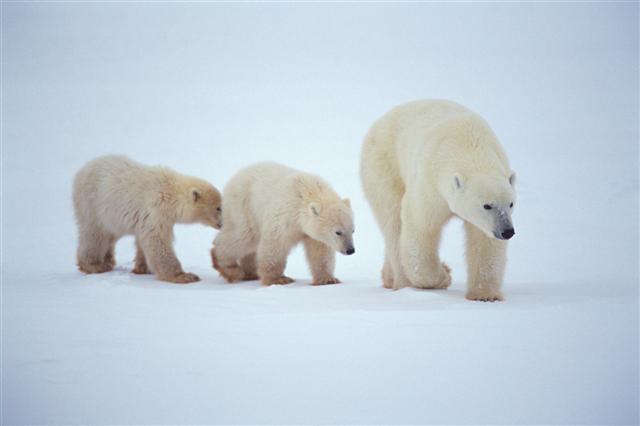
WWF has recently released a statement on WWF's position and recommendations for the 2015 Ministerial Meeting of the Arctic Council, which will take place in Iqaluit next 24th April.
During the meeting, which takes place every two years in different locations, particpants will outline objectives and priorities for the Arctic Council for the following two years, highlight Canada chairmanship's achievements, and mark the beginning of the United States' chairmanship (2015-2017). While "decisions at all levels in the Arctic Council are the exclusive right and responsibility of the eight Arctic States with the involvement of the Permanent Participants", yet observers, as WWF, may attend the meetings, observe the works of the Council, propose projects, and, in meetings of the Council's subsidiary bodies, present written statements, submit relevant documents and provide views on the issues under discussion.
WWF is one of the eleven Non-governmental organizations that have been granted observer status in the Arctic Council over the years. As reported by the WWF web-site, the main points of the statment are:
Focus on a "new Ocean"
Ominous new records in Arctic sea ice extent and volume have become a regular occurrence. A progressively more ice-free ocean is emerging in the Arctic. Arctic states must cooperate and take practical actions to protect Arctic life and minimize the risks of increasing industrial impacts.
Arctic states must:
Identify and protect marine areas of special ecological significance to improve biodiversity conservation through a representative Arctic marine protected areas network.
Design and adopt a legally binding regional seas agreement to enhance ecosystem health of the Arctic Ocean and coastal communities' wellbeing.
Empower Arctic Peoples
Many Arctic communities are currently fully dependent on dirty, expensive fossil fuels to generate electricity, power their economies and heat their homes. The Arctic Council can help Arctic communities transition to community-scale renewable energy technologies as part of a plan to reduce the impacts and risks of development while increasing local and environmental benefits.
Arctic states must:
Prioritize community-scale development including expansion of renewable energy projects that will substitute diesel and heavy fuel oil and truly benefit local peoples.
Develop a long-term (2030-2050) Arctic sustainable development vision based on downscaling of industrial projects and diversification of the Arctic economy.
Factor in the value of biodiversity conservation to improve human wellbeing in the region.
Act on Climate Change
At the first Ministerial meeting in 1998, the Arctic Council was mostly concerned with Arctic pollution issues and the related human health consequences which led to the 2001 Stockholm Convention on persistent organic pollutants and the more recent 2013 Minamata Convention on mercury. Today, Arctic nations are facing an even more dynamic and complex set of problems related to the rapidly changing environmental, social and economic conditions of the region.
Arctic states must:
Work with observer states to drive the adoption of ambitious greenhouse gas emissions reduction targets in the coming climate negotiations in Paris.
Work with observer states to reduce local emissions of methane and black carbon.
Develop tools to improve the resilience of Arctic peoples and ecosystems to adapt to Arctic changes.
Identify all sorts of subsidies to hydrocarbon development in the Arctic and reallocate at least 50% of them to support renewable energy solutions for Arctic communities.
You can read WWF full recommendations here.